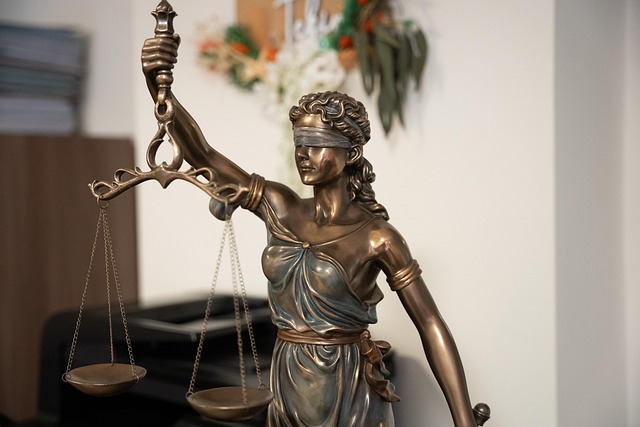Litigation Support Services play a pivotal role in modern legal practice, particularly in prosecutor strategies for plea bargaining. These services leverage advanced analytics to guide prosecutors in complex white-collar crime cases, ensuring fairness and efficiency. By balancing justice with potential charge dismissals, these strategies adapt to diverse scenarios, from corporate misconduct to individual criminal acts. Case studies show their significant impact on outcomes, helping legal professionals develop effective tactics for mutually beneficial resolutions. Future trends favor holistic approaches that consider defendant backgrounds and rehabilitation, with increased data-driven decision-making and collaborative problem-solving.
“Litigation Support Services play a pivotal role in shaping legal outcomes, especially in the plea bargaining process. This comprehensive guide explores the intricate world of prosecutor strategies that drive successful negotiations. From understanding the core components of effective plea bargains to examining real-world case studies, we delve into the art and science behind these strategic decisions.
Furthermore, we analyze the evolving landscape, including challenges and emerging trends, in prosecutor strategies for plea bargaining, providing valuable insights for legal professionals.”
- Understanding Litigation Support Services: A Comprehensive Overview
- The Role of Prosecutor Strategies in Plea Bargaining
- Key Components of Effective Plea Bargaining Negotiation
- Case Studies: Success Stories in Plea Bargaining Using Litigation Support
- Challenges and Future Trends in Prosecutor Strategies for Plea Bargains
Understanding Litigation Support Services: A Comprehensive Overview

Litigation Support Services play a pivotal role in modern legal proceedings, offering a range of specialized assistance to attorneys and prosecutors alike. These services encompass a comprehensive array of tools and expertise designed to streamline complex cases, enhance efficiency, and ultimately, facilitate just outcomes. From evidence management and case analysis to expert witness coordination and trial preparation, these services are instrumental in navigating the intricate nuances of the legal system.
One area where Litigation Support Services shine is in the Prosecutor Strategies in Plea Bargaining Process. By employing advanced analytical techniques, they assist prosecutors in evaluating potential plea agreements, ensuring that strategies align with the best interests of both the prosecution and the accused. This is particularly crucial in cases involving white-collar and economic crimes, where the consequences can be severe across the country. Through these services, prosecutors can navigate the delicate balance between seeking justice and achieving a complete dismissal of all charges, ultimately contributing to a fair and effective legal process.
The Role of Prosecutor Strategies in Plea Bargaining

The Prosecutor Strategies in Plea Bargaining Process play a pivotal role in shaping the outcome of criminal cases. Prosecutors, armed with a deep understanding of the law and extensive experience, employ various tactics to negotiate plea agreements. These strategies are designed to balance justice with efficiency, allowing for swift resolutions while ensuring that defendants receive fair treatment. By carefully considering factors such as the strength of evidence, potential sentences, and the interests of both corporate and individual clients, prosecutors can navigate complex legal landscapes.
Effective prosecutor strategies focus on striking a delicate equilibrium between avoiding indictment for less serious offenses and fostering cooperation from defendants. This approach benefits not just the state’s case but also the philanthropic and political communities by promoting restorative justice practices. Moreover, these strategies cater to diverse scenarios, whether dealing with corporate misconduct or individual criminal acts, ensuring that each case is approached holistically.
Key Components of Effective Plea Bargaining Negotiation

Effective plea bargaining negotiation involves a delicate balance between prosecutor strategies and defendant interests. Key components include recognizing the value of information and cooperation, understanding the range of possible sentences, and assessing the strength of the case against the defendant. Prosecutors often employ strategies that focus on avoiding indictment entirely or securing a lighter sentence in exchange for substantial assistance, such as providing witness testimony or sharing crucial evidence. This collaborative process requires open communication throughout all stages of the investigative and enforcement process, allowing both parties to navigate towards mutually agreeable outcomes.
Successful negotiation also demands a deep understanding of general criminal defense strategies. Defendants must be apprised of their rights, potential consequences, and alternative pathways to resolve the case without trial. By carefully weighing these factors, both prosecutors and defendants can achieve favorable outcomes that balance justice with efficiency, ensuring a fair process within the legal framework.
Case Studies: Success Stories in Plea Bargaining Using Litigation Support

In the realm of litigation support services, case studies illustrate powerful tools for understanding success stories in plea bargaining. These real-world scenarios showcase how prosecutor strategies in the plea bargaining process can significantly influence outcomes, especially in high-stakes cases. By examining these instances, legal professionals gain insights into effective tactics that contribute to an unprecedented track record of successful negotiations.
The general criminal defense strategy often revolves around building a robust case for both the defendant and prosecutor. Through careful analysis and leveraging available resources, litigants can navigate complex legal landscapes. Plea bargaining becomes a strategic maneuver where both parties find mutually agreeable terms, ensuring a more efficient resolution compared to lengthy trials. This approach has proven effective in various scenarios, leaving a mark on the legal landscape with its remarkable success rates.
Challenges and Future Trends in Prosecutor Strategies for Plea Bargains

The plea bargain process presents unique challenges for prosecutors, particularly as criminal justice systems evolve. One significant challenge is balancing the pursuit of just sentences with the complexities of a diverse defendant population. Across the country, prosecutor strategies in plea bargaining must adapt to address not only the nuances of individual cases but also societal trends and changing public expectations. For instance, increasing focus on rehabilitation and diversion programs may impact traditional prosecution tactics.
Future trends suggest a shift towards more holistic approaches that consider not just the crime but also the defendant’s background and potential for reform. Prosecutors are exploring innovative strategies to enhance transparency, fairness, and efficiency across all stages of the investigative and enforcement process. By embracing data-driven decision-making and collaborative problem-solving, prosecutors aim to achieve favorable outcomes while ensuring that winning challenging defense verdicts remains a cornerstone of the criminal justice system.
The article has explored the intricate world of litigation support services, with a focus on prosecutor strategies within the plea bargaining process. By understanding the key components and successful case studies presented, it becomes evident that effective negotiation is a critical aspect of achieving favorable outcomes in criminal cases. As the legal landscape evolves, staying abreast of emerging trends and challenges will enable prosecutors to navigate complex situations, ensuring justice is served while optimizing resources through strategic plea bargaining. This comprehensive overview highlights the importance of litigation support services in modern criminal justice systems.






